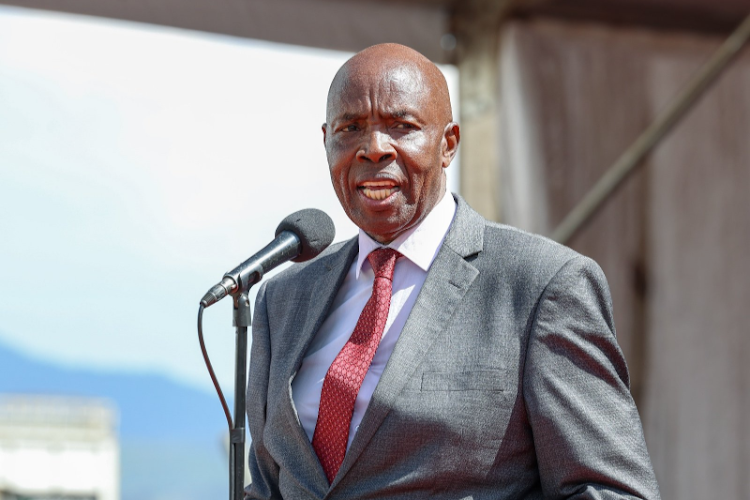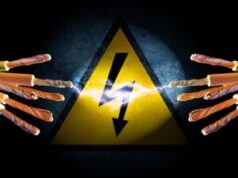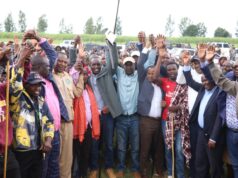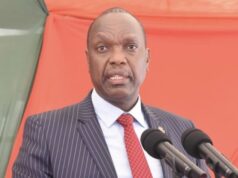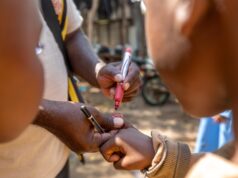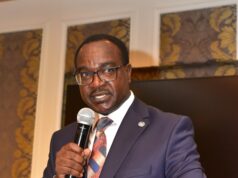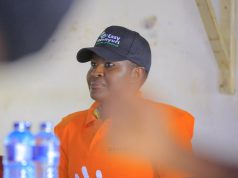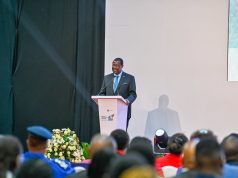Education Cabinet Secretary Ezekiel Machogu now wants Nairobi Governor Johnson Sakaja to map out any empty public land within the capital for the construction of more public schools.
The CS noted that only 29 per cent of the schools within Nairobi are public while 71 per cent are all private.
“We know there is public land in Nairobi which has not been utilised in any way. Can we identify any additional public land where we can establish more schools?”
“Mashamba yote si Sakaja atupatie jameni? (Should Sakaja give us all the available land?),” the CS said.
He said Nairobi has a lot of resources that could be used to improve the quality of education.
“It is now time to identify all our resources in Nairobi both human capital and technical so we can use it to cater for our children’s education,” he said.
He said for education to work in Nairobi, the ministry must take radical measures.
Machogu said education in Nairobi faces a lot of challenges, adding that most Es in KCSE usually come from Nairobi.
The CS called for a collaboration with Sakaja in a bid to enhance education in the county.
He said the availability of more schools will reduce the distance learners walk to school, and increase their safety as well.
He urged Sakaja to come up with a task force that would help in mapping out available public land.
The CS spoke on Thursday at the Kenya Institute for Special Education(KISE) in Nairobi when graced the Inaugural Nairobi Education Conference.
The Conference, which has been organized by the Ministry of Education, Regional Director of Education Margaret Lesuuda in collaboration with other partners in the education sector, aims at identifying and discussing the challenges that hold back the realization of inclusive quality education in the region.
The inaugural Education conference was themed: Revitalizing quality education in Nairobi: make education work for children in Nairobi.
Machogu said the provision of education in public schools in Nairobi faces more challenges than in other parts of this country.
He said there are more private schools than public ones in Nairobi.
“Public schools constitute only 31 per cent of the schools in the County, with the other 69 per cent being private ones,” the CS said.
Though Machogu termed the high number of private schools as commendable, he noted that it threatens accessibility, inclusivity, affordability, and quality of education.
“This is more so when the Government continues to provide capitation to all students in public schools and implement other countrywide programmes that promote inclusivity of education,” he said.
Machogu said among public schools in the city, there are 216 ECDE, 211 primary, 193 junior and 107 secondary schools.
He said private schools in those categories are 952, 780, 672, and 207 respectively.
Further, Machogu said as the government rolls out the CBC, there is an urgent need to ensure that public schools are expanded to accommodate grade 9 students in Nairobi and the rest of the country next year.
He said there are currently 4,651 classrooms in primary schools in Nairobi County, resulting in a deficit of 983 classrooms.
“Indeed, the infrastructure situation in Nairobi is concerning, particularly because it is also the capital city,” he said.
To address the situation, Machogu said the National Government will construct 3,500 additional classrooms in the County, in the course of the next three years.
“However, this financial year, Sh1 billion has been provided to the 17 constituencies in Nairobi County for the construction of 1,000 classrooms,” he said.

